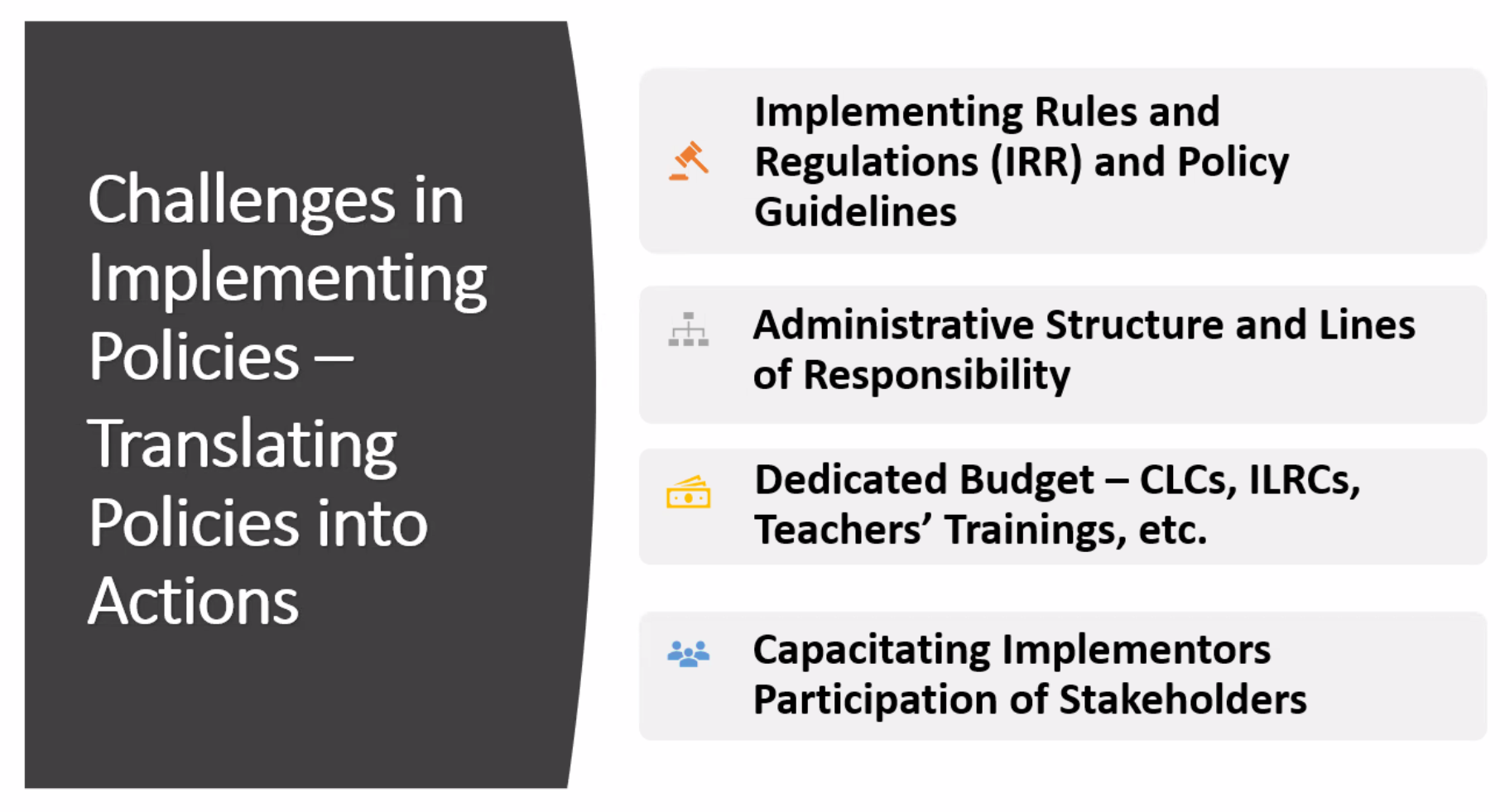
Addressing the barriers for disability-inclusive education and lifelong learning in the Asia Pacific
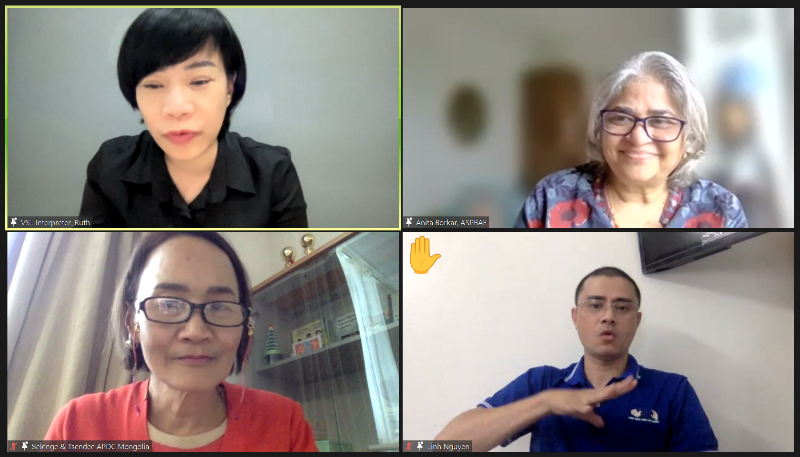
Disability-inclusive education is vital to achieving quality education for all, and for just and more inclusive societies, important components of ASPBAE’s vision and mission.
Civil society organisations from the Asia Pacific met virtually to participate in an ASPBAE workshop on 12 & 14 October 2022 to talk about disability-inclusive education from a rights-based perspective, expand capacities, and strategise and strengthen related education policy at national, regional, and global levels.
ASPBAE members from the Philippines (E-Net Philippines), Mongolia) All for Education Mongolia), and Vietnam (VAEFA) spoke about the diverse contexts of disability-inclusive education in their countries and civil society action around the issue.
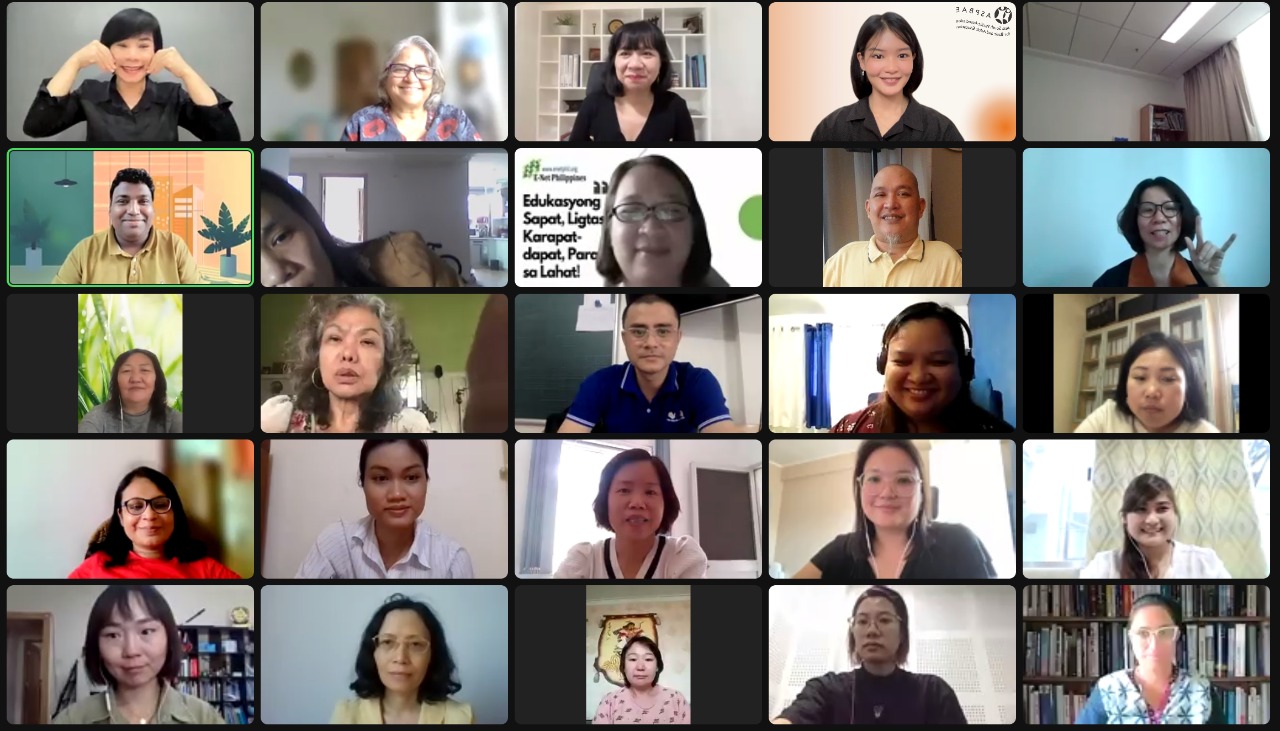
THE CONTEXT
Although varying levels of progress have been achieved globally and in the Asia Pacific in advancing disability-inclusive education and lifelong learning in recent years, persons with disabilities continue to face numerous barriers.
The main barriers to the education and lifelong learning of persons with disabilities entail discrimination and stigma on the ground of disability, lack of accessibility to physical and virtual learning environments, lack of access to assistive technology, essential services, and rehabilitation and support for independent living that are critical, not only for their education and learning, but also for their full and equal participation as agents of change and development. The barriers remain due to policy and budget gaps, cultural biases, and other factors that often reflect lacking or wavering political will of governments to carry out their obligations.
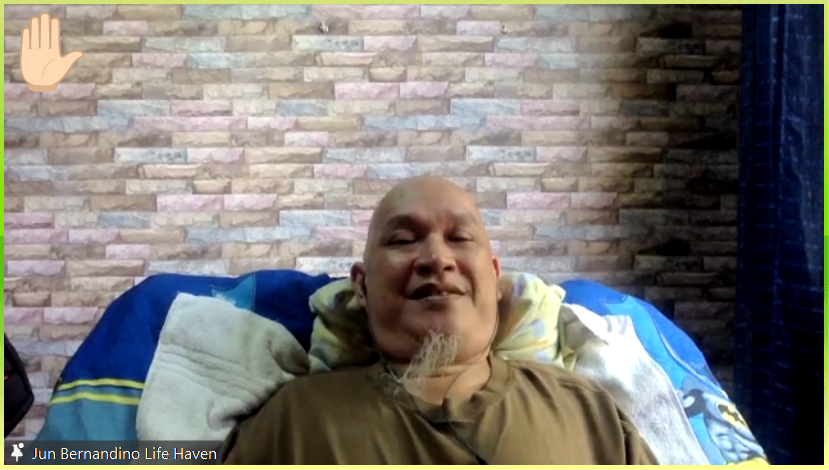
PHOTO: “If governments support persons with disabilities by providing services in local communities, then learners with disabilities of all ages will be able to access and benefit from quality inclusive education and learning opportunities throughout their lives, with dignity.” – Jun Bernandino, Life Haven (member of E-Net Philippines)
Education systems in the Asia Pacific need to be strengthened to widen their framing and strategies to reach the most marginalised and vulnerable sectors who have been left behind and continue to be excluded in the education efforts and the initiatives of governments.
Education rights activists organised in broad-based national education coalitions in the Asia Pacific have played important roles in shaping policies and priorities advancing the right to education. Rising inequality and widening disparities in education systems and societies, however, require scaled-up responses and capacities of civil society.
While equity has been a primary focus of ASPBAE’s work and of its member national education coalitions, it has been recognised that they need to grow capacities to better challenge the persistent inequalities and discriminatory systems in education in the region, to more powerfully advocate at all levels of advocacy, including (re-)shaping their methods of work and organisation to be strong and credible agents for change and reforms.
Inclusive education helps create societies based on tolerance, inclusion, and social justice. It prevents people with disabilities from being isolated and excluded from society. Instead, it enables them to participate in community life alongside everyone else. Through learning together, students and learners, with and without disabilities, and their teachers and parents, can more easily understand and accept each other. Importantly, inclusive education helps people with disabilities take their place as equal members of society. It is a vital step towards greater independence, improved social skills and opportunities to take part in the economy and society as a whole.
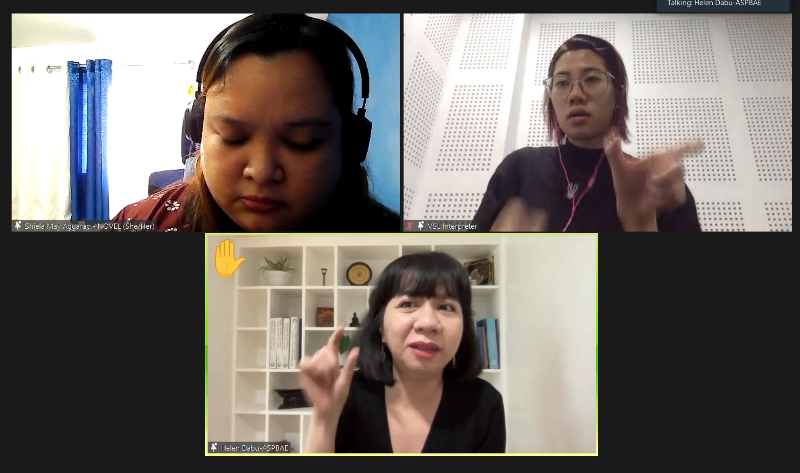
THE INITIATIVE
ASPBAE aims to work more closely with national education coalitions in the Philippines, Mongolia, and Vietnam in these efforts. In all three countries, while governments have ratified the United Nations Convention on the Rights of People with Disabilities (CRPD) – the challenge has been in translating these into viable education policies and programmes.
The education coalitions in Vietnam, Philippines, and Mongolia have prioritised disability-inclusive education over the last couple of years: further capacity-support for them will allow them to scale up their advocacy efforts. In Vietnam, this will be important as the coalition engages in shaping the new education sector plan of the country. The coalition in the Philippines intends to leverage its access to various technical committees of the Department of Education and parliamentary forums to make the case for the promulgation of a national law on disability-inclusive education and for higher budgetary allocations for inclusive education. The coalition in Mongolia has been asserting the concretisation of CRPD in education policies, programmes, and financing in the country.
This workshop aimed to help expand and consolidate the engagement of organisations representing people with disabilities.
